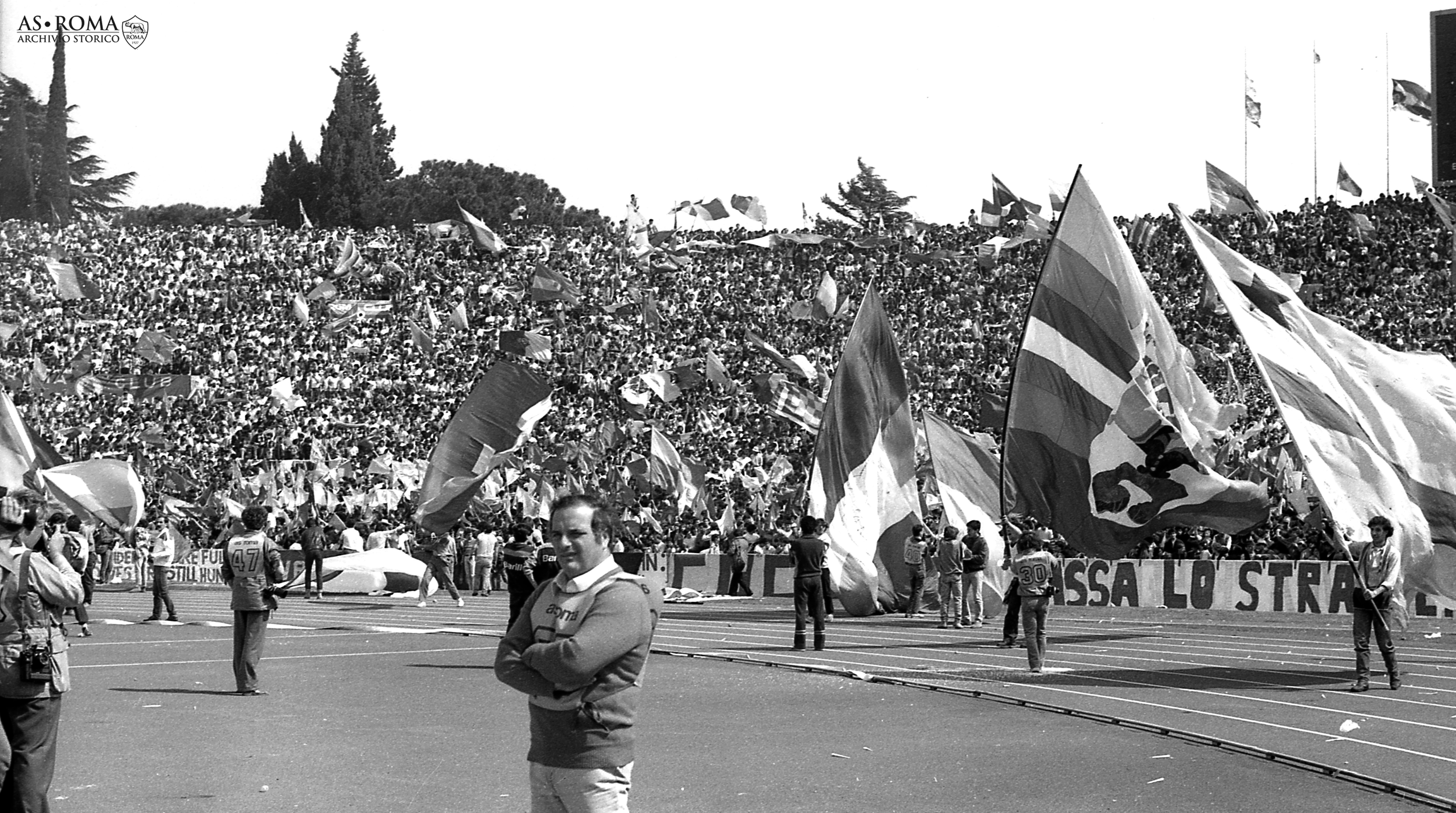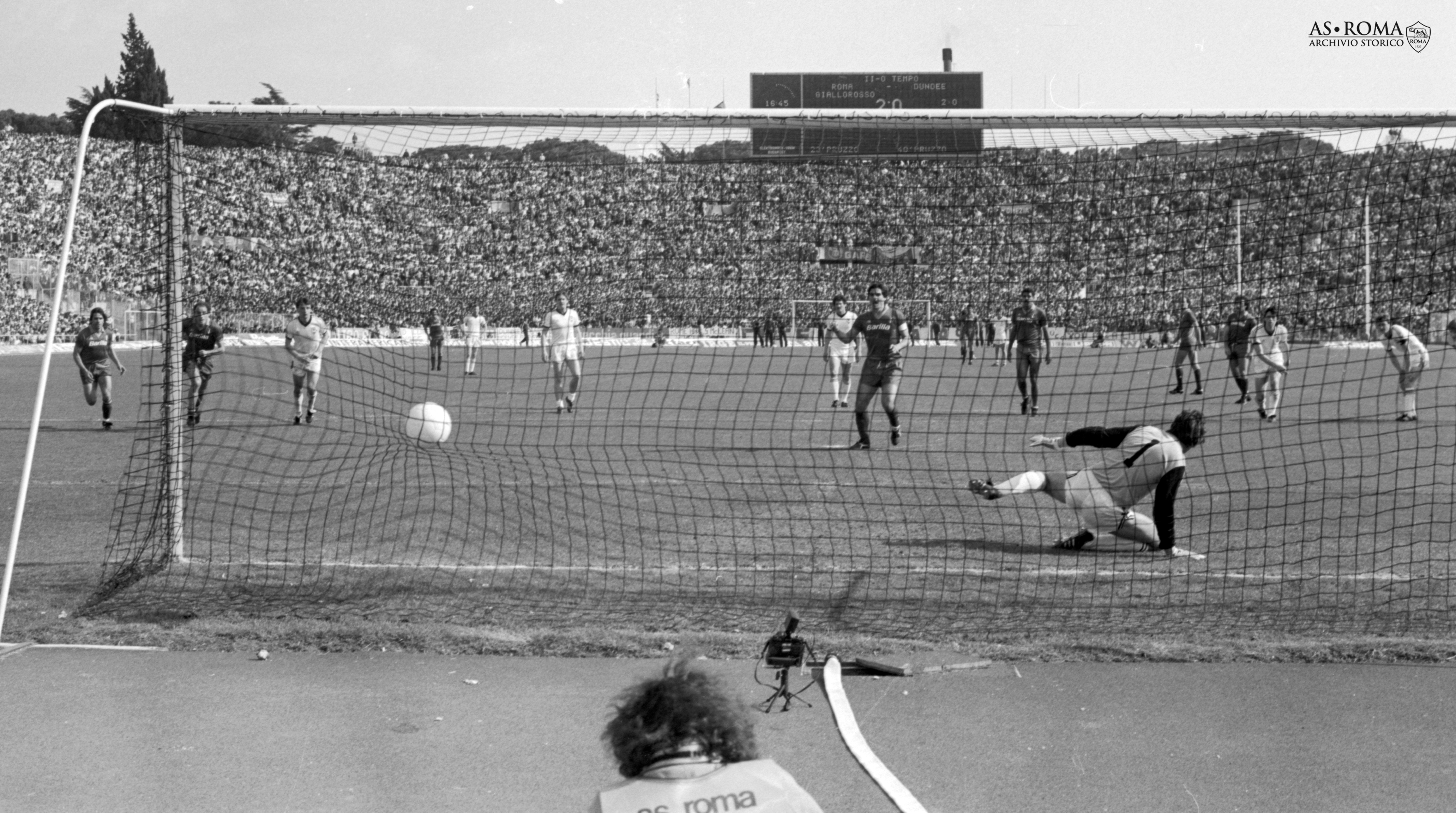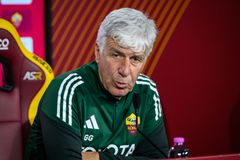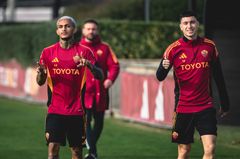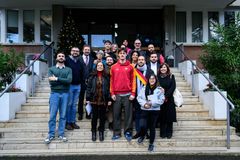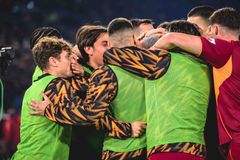
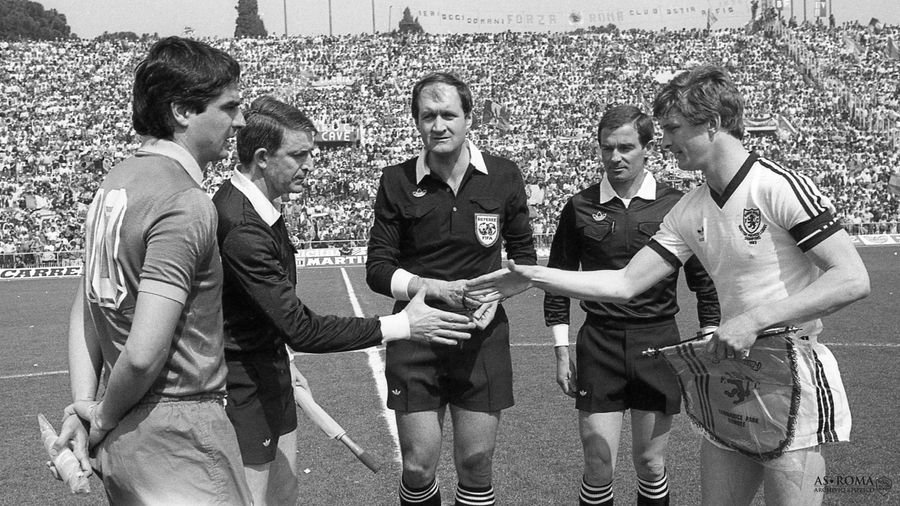
Their meeting at the Stadio Olimpico on 25 April 1984 has its own legend in both Scotland and Italy, as Roma overturned a two-goal deficit with a 3-0 win that took them into the final of the competition - played in Rome and at the Olimpico - for the first time in their history.
That incredible game was given its volatile grounding when the Scottish champions brushed aside their Italian counterparts 2-0 at Tannadice Park.
Davie Dodds and Derek Stark were the goalscorers that night, with former United midfielder Billy Kirkwood later recalling; “They didn’t like our shitty wee stadium.”
Roma underestimated Jim McLean’s all-action Tangerine, as Nela reflected years later: “Unfortunately, I have to admit, I’m almost sure that my team-mates and I took our opponents lightly in the game in Scotland.
“We did not behave like professionals, believing that we could beat them without problems. They were not a club of great traditions, and when we got drawn together, we were quite convinced that we had a good chance of beating them.”
McLean’s side shouldn’t have been taken lightly, having lifted the Scottish Premier League title in dramatic fashion the year before as United beat local rivals Dundee on the final day of the campaign to seal the trophy.
This was a time when Scottish football was welcoming the ‘New Firm’ into existence as Alex Ferguson’s Aberdeen and McLean’s Dundee United briefly broke the stranglehold of Celtic and Rangers.
Roma, meanwhile, were riding their own wave of success, with Nils Liedholm leading the likes of Carlo Ancelotti, Bruno Conti, Sebastiano Nela and Roberto Pruzzo to the 1982-83 Scudetto.
That title sealed their place in Europe’s premier club competition, where they swept aside IFK Goteborg, CSKA Sofia and FC Berlin prior to taking on Dundee.
The fallout from the first leg was as immediate as it was severe; laying the platform for the hostility to come.
McLean’s joke that his players must have been on drugs, such was their level of performance in Dundee, was taken a little too literally by the Italian press and those comments were stoked further by both Liedholm and then Roma president Dino Viola.
The latter is then perhaps the main protagonist for the vitriol that is vividly embedded in this game’s memory.
A clandestine meeting with second leg referee Michel Vautrot was arranged, set up by Genoa sporting director Spartaco Landini and fellow executive Giampaolo Cominato, to test the waters of a supposed bribe that would guarantee Roma’s place in the subsequent final at the Olimpico.
It was found in Italian courts three years later, however, that Landini and Cominato - who received suspended prison sentences for their role in the affair - had created the entire ruse to extort money from Viola and that no payments had or could have ever made their way to Vautrot.
UEFA never laid any charges upon Vautrot and he would go on to officiate at the 1990 World Cup, while claims from Viola’s son Riccardo later in life that the scam had been legitimate are not only watered down by the court findings, but also rendered somewhat implausible by how the game itself played out.
“With complete honesty, I have to say I never believed this story, even when the strange declarations of Dino Viola’s son, who at the time was part of the management, came out,” said Nela, who was made infamous to Dundee fans by a stunning photograph following Roma’s second leg win that shows him making a rude gesture at McLean.
“It is something I have never discussed, either with President Viola or with my team-mates of the time. Why? Because our performance that day against Dundee United was one of the best we ever produced.
“We would have beaten anyone that afternoon, so to claim we won thanks to the help of the referee is laughable.
"The truth is United could have had one of their own players refereeing the tie and we would still have got past them.”
McLean’s assistant, Walter Smith, shared that view: “I must say, during the game there wasn’t a decision which I questioned.
“Roma were an excellent side and the regret was that, after going 2-0 up, we had a good chance of getting to the final but didn’t take it. We just didn’t play as well as we normally did in Rome that night.”
Rancor about the game exists to this day, especially in Scotland, but perhaps not among those who remember watching the game itself.
The capital clearly made for uncompromising hosts to the visitors from the moment they landed and by the time kick-off rolled around, this appeared to reach fever pitch as fruit rained down on the away side from the Curva Sud and Liedholm’s men exerted relentless pressure on the opposition.
Roma also had their own grievances with the officials, with Bruno Conti’s early effort ruled out for offside - the first of two Giallorossi strikes that were chalked off. A second half yellow card for Aldo Maldera, one of only two shown in the game, also ruled the defender out of the subsequent final.
Dundee were more harshly punished for an offside at the other end not long after and Ralph Milne should have put his side in front before Roberto Pruzzo was on target at the other end.
There are no question marks over Pruzzo’s opener as he simply rose highest and powerfully headed Conti’s corner beyond Hamish McAlpine in the United goal.
His second is just as emphatic, with Pruzzo controlling sublimely on his chest in the Dundee box before arrowing into the far corner and wheeling away in raptures having levelled proceedings just 38 minutes into the return leg.
There’s little doubt in Roma’s third on 58 minutes, either, with McAlpine holding his hands up in apology having brought down Pruzzo in the box for a stonewall penalty that was the result of a wonderfully free flowing Roma counter.
Agostino Di Bartolomei stepped up to convert from the spot, securing the 3-0 scoreline that would send the Giallorossi onto the final - scheduled to take place at the Olimpico, of course.
It put an an end to the game, and the tie, but not its legacy, which will live on in folklore - for right and wrong reasons - for years to come.

 Tickets
Tickets
 Shop
Shop














